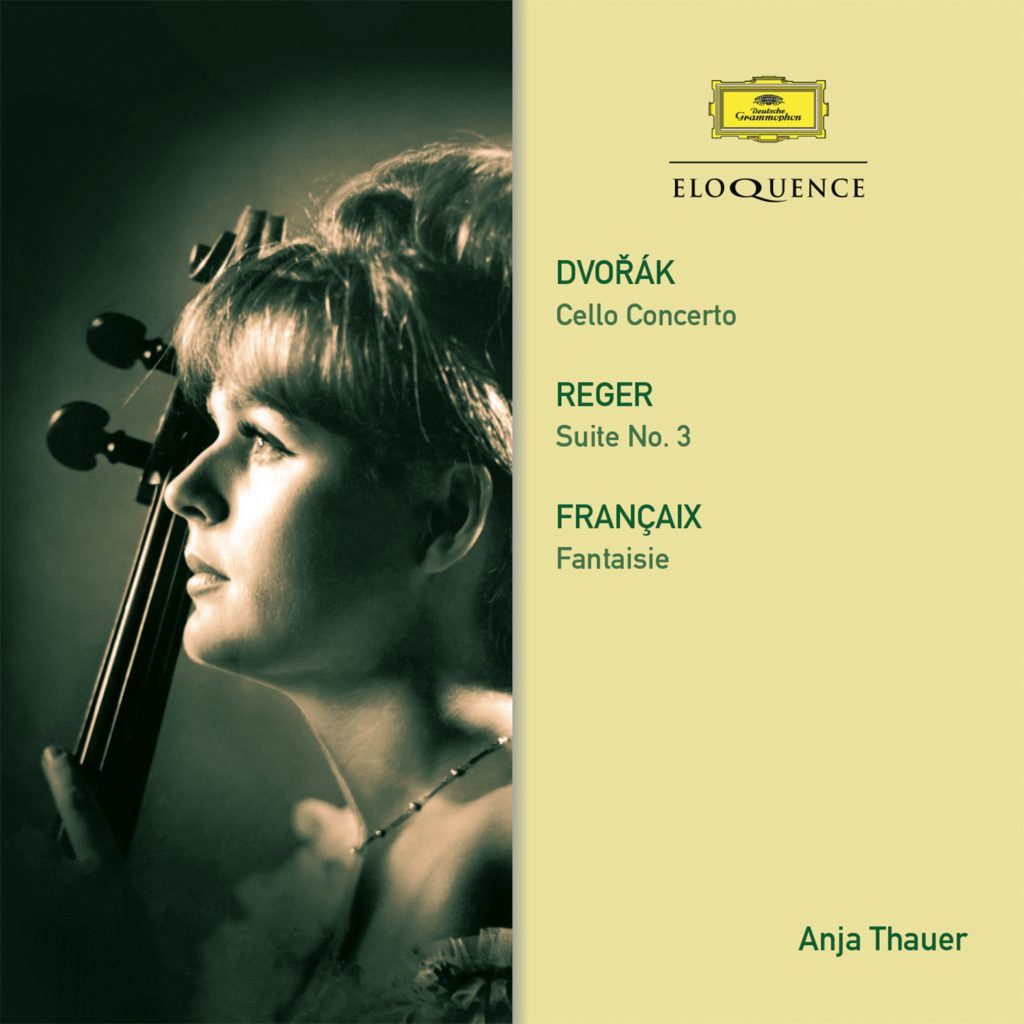In the year 2015 we should have been celebrating the seventieth birthdays of two uniquely talented women cellists who were both born in 1945 but instead we have been remembering a more tragic coincidence: in 1973, multiple sclerosis forced the English virtuoso, Jacqueline du Pré, to retire and her German colleague, Anja Thauer, committed suicide. At that stage Du Pré had already enjoyed almost a decade of fame while Thauer was still building her career.
Anja Heidi Thauer was born on 3rd July 1945 in the old Hanseatic port of Lübeck. She had her early music lessons in Braunschweig, some 160 miles to the south and grew up in Erlangen, attending the Conservatory in nearby Nuremberg. Friends spoke of a lonely childhood and a strict, domineering, even exploitative mother. Anja played violin-and-cello duets with her mother in public at twelve, performed the Boccherini-Grützmacher B flat Concerto at her orchestral début in Baden-Baden, aged thirteen and at fourteen entered Ludwig Hoelscher’s Stuttgart Hochschule masterclass: he was the leading German cellist, a somewhat old-fashioned player but a profound musician.
At fifteen she went to the Paris Conservatoire on a scholarship, to study with André Navarra and also took a course at the École Normale. In 1962, against strong competition from 21 other Paris Conservatoire students, she won the Grand Prix. She was friends with the pianist Claude Françaix and her playing of the ‘Fantaisie’ by Claude’s famous father, Jean Françaix, had so impressed the pianist-composer that he accompanied her in the final concert; his music became one of her strongest suits and she recorded the work some years later, coupling it with Reger’s Third Suite for solo cello. At this stage many fellow students thought her a better player than Du Pré who studied briefly in Paris with Paul Tortelier around the same time.
In Prague, in March 1968, she made the DG recording which makes up the rest of this reissue and for which she is best remembered, the Dvořák Concerto with the Czech Philharmonic under 32-year-old Zdeněk Mácal. It was a version praised by The Gramophone’s Trevor Harvey upon its first appearance, not only for Thauer’s expressive playing but for the many felicities in Dvořák’s score so often overlooked in performances of the work. Thauer’s discography is far from large but it is mostly of top quality and these three interpretations are central to it.
Tully Potter provides the insightful liner notes for this release, marking the first international release on CD of Anja Thauer’s Deutsche Grammophon recordings.
ANTONÍN DVOŘÁK
Cello Concerto in B minor, Op. 104
Anja Thauer, cello
Czech Philharmonic Orchestra
Zdeněk Mácal
MAX REGER
Suite in A minor for Solo Cello, Op. 131c No. 3
JEAN FRANÇAIX
Fantaisie pour violoncelle et piano
Anja Thauer, cello
Jean Françaix, piano
ANJA THAUER’S COMPLETE DEUTSCHE GRAMMOPHON RECORDINGS RELEASED INTERNATIONALLY ON CD FOR THE FIRST TIME
Recording Producers: Rainer Brock (Dvořák); Karl Faust (Reger, Françaix)
Balance Engineers: Günter Hermanns (Dvořák); Heinz Wildhagen (Reger, Françaix)
Recording Engineer & Editor: Wolfgang Werner (Dvořák)
Recording Locations: Studio Rahlstedt, Hamburg, Germany, 28–29 March 1968 (Dvořák); Kulturraum, Bamberg, Germany, 11 July 1964 (Reger, Françaix)
‘Unaccompanied cello music, even as agreeably consonant as this three-movement Reger Suite in A minor, is only bearable when it is superbly played. It is here, with fine tone and impeccable intonation. … Anja Thauer is already among the elect as a cellist’ (Reger, Françaix) Gramophone
‘Anja Thauer is clearly an extremely gifted cellist both technically and in her character as an artist … Zdeněk Mácal … contributes an accompaniment of real character and individuality … These two artists in collaboration give us an untraditional interpretation of the concerto in the very best sense of that adjective; that is, they refuse to accept the way parts of it are conventionally played and give it as if they had never heard anyone else in it before … Miss Thauer’s technique is triumphant so the most difficult double-stopping at speed is perfectly tuned and completely assured.’ Gramophone

